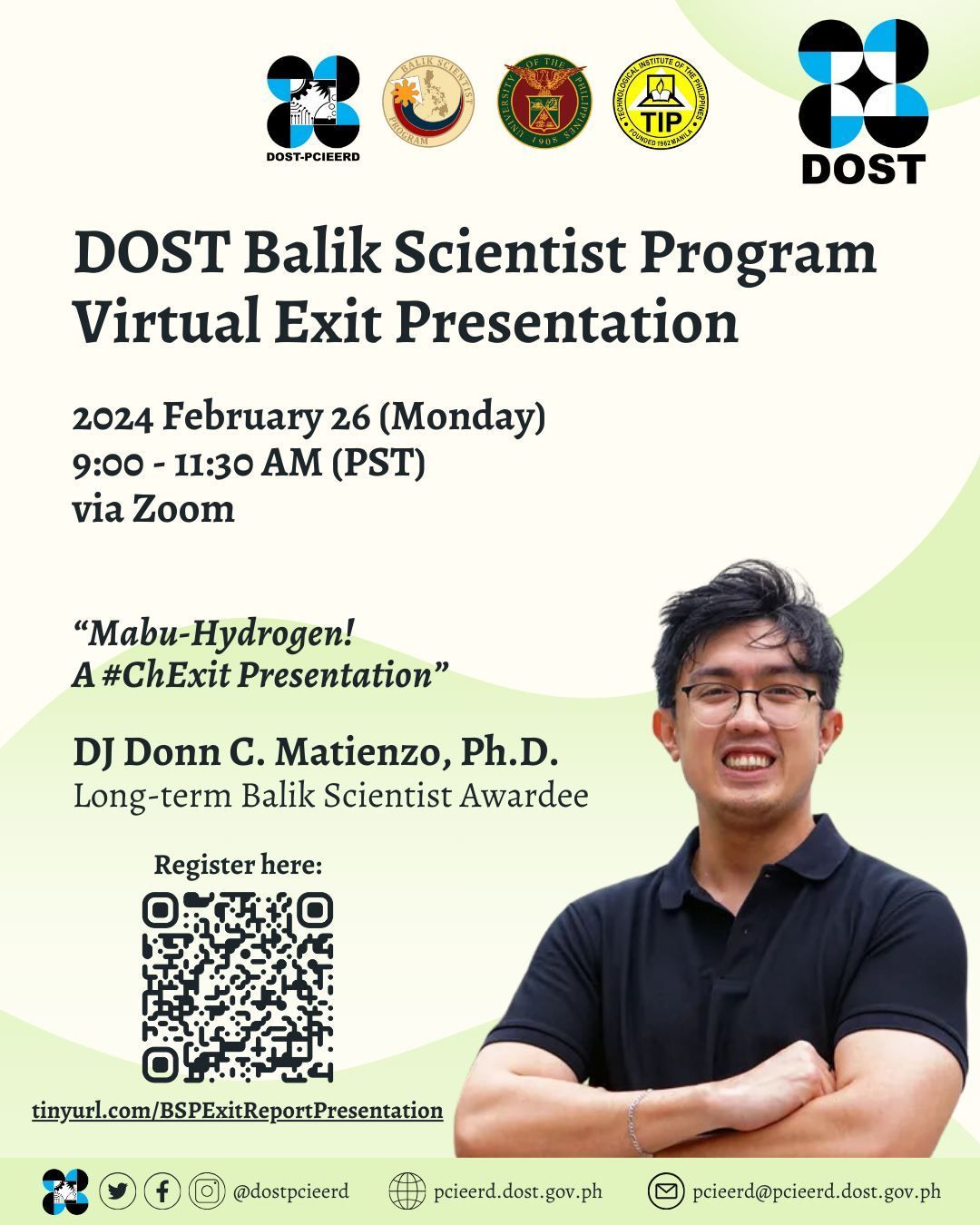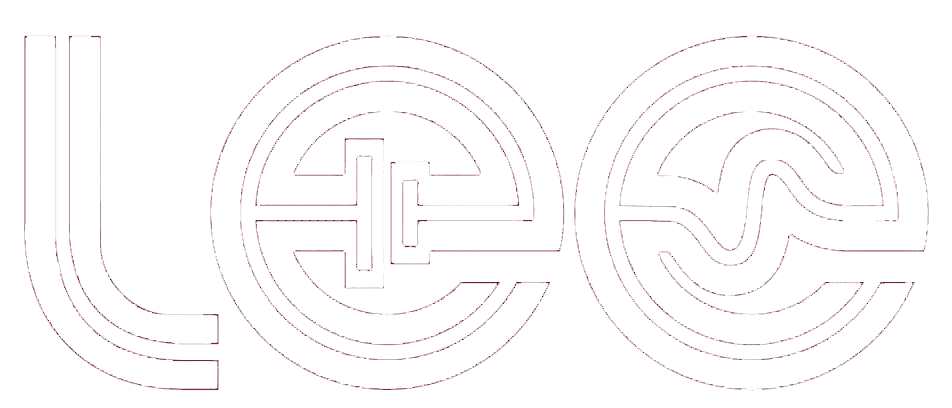Project CIPHER Organizes Renewable Energy Training for In-service Science Teachers
Rhoda Ramos • Feb 21, 2024
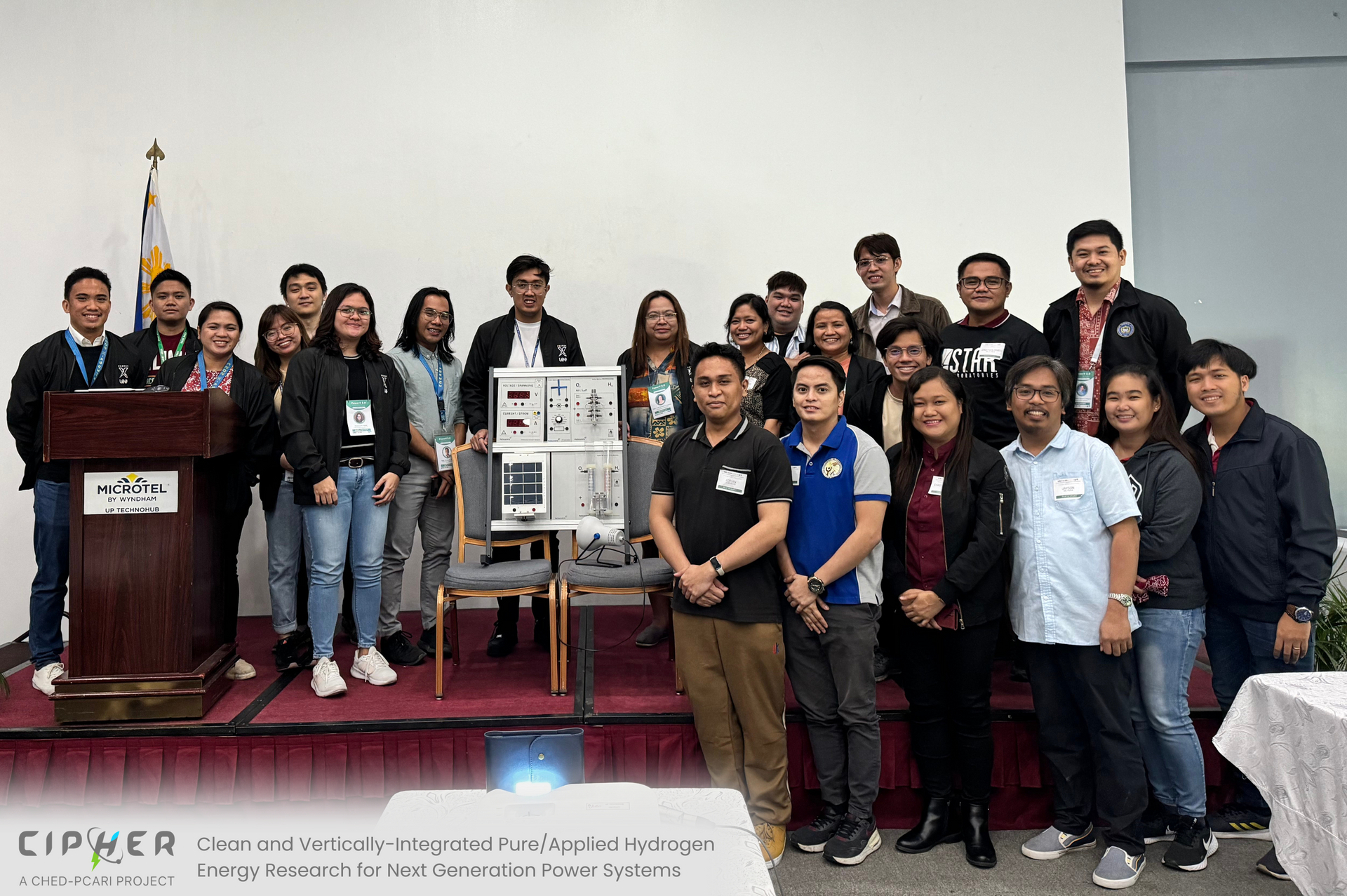
Slide title
Write your caption hereButton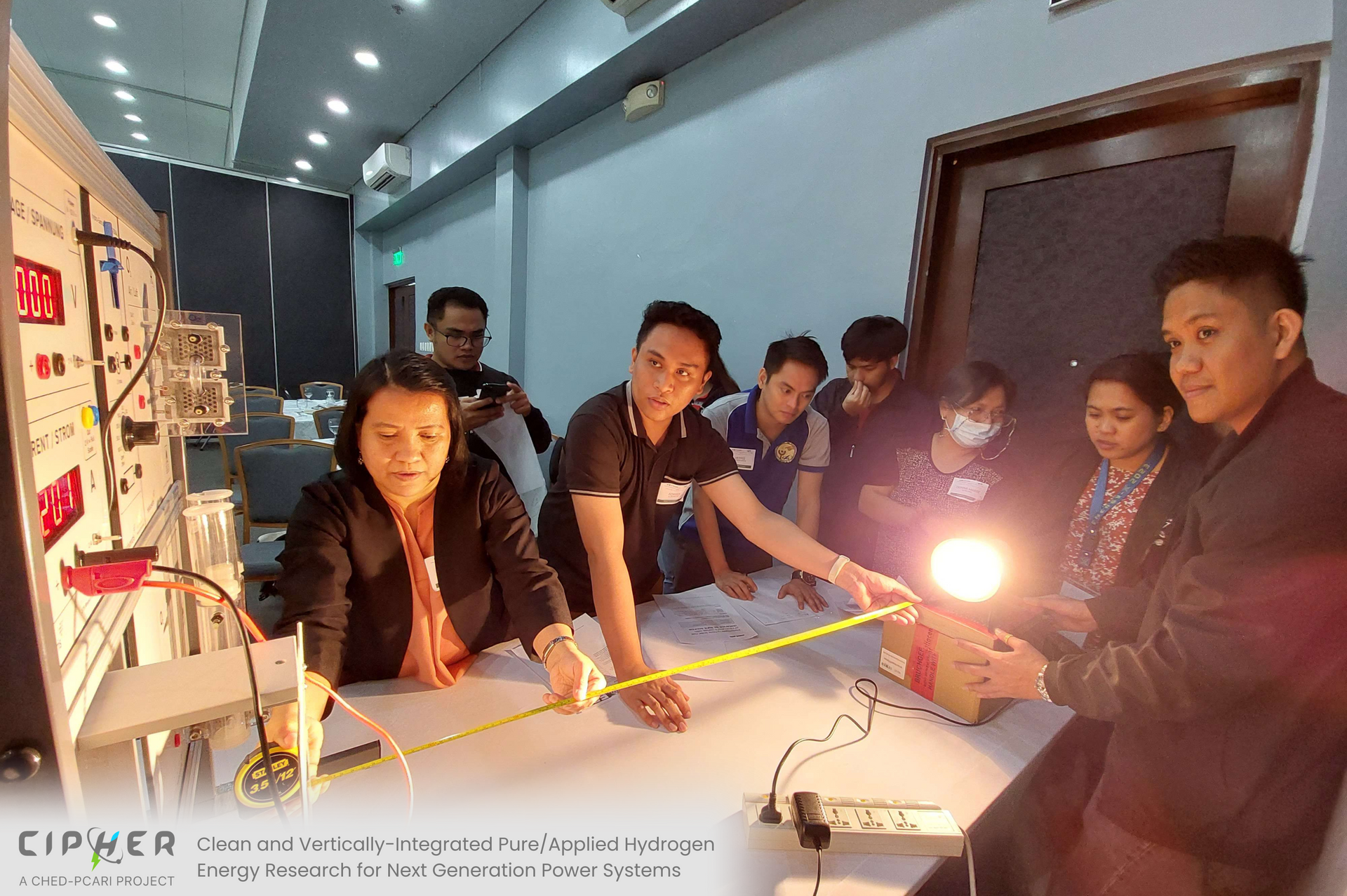
Slide title
Write your caption hereButton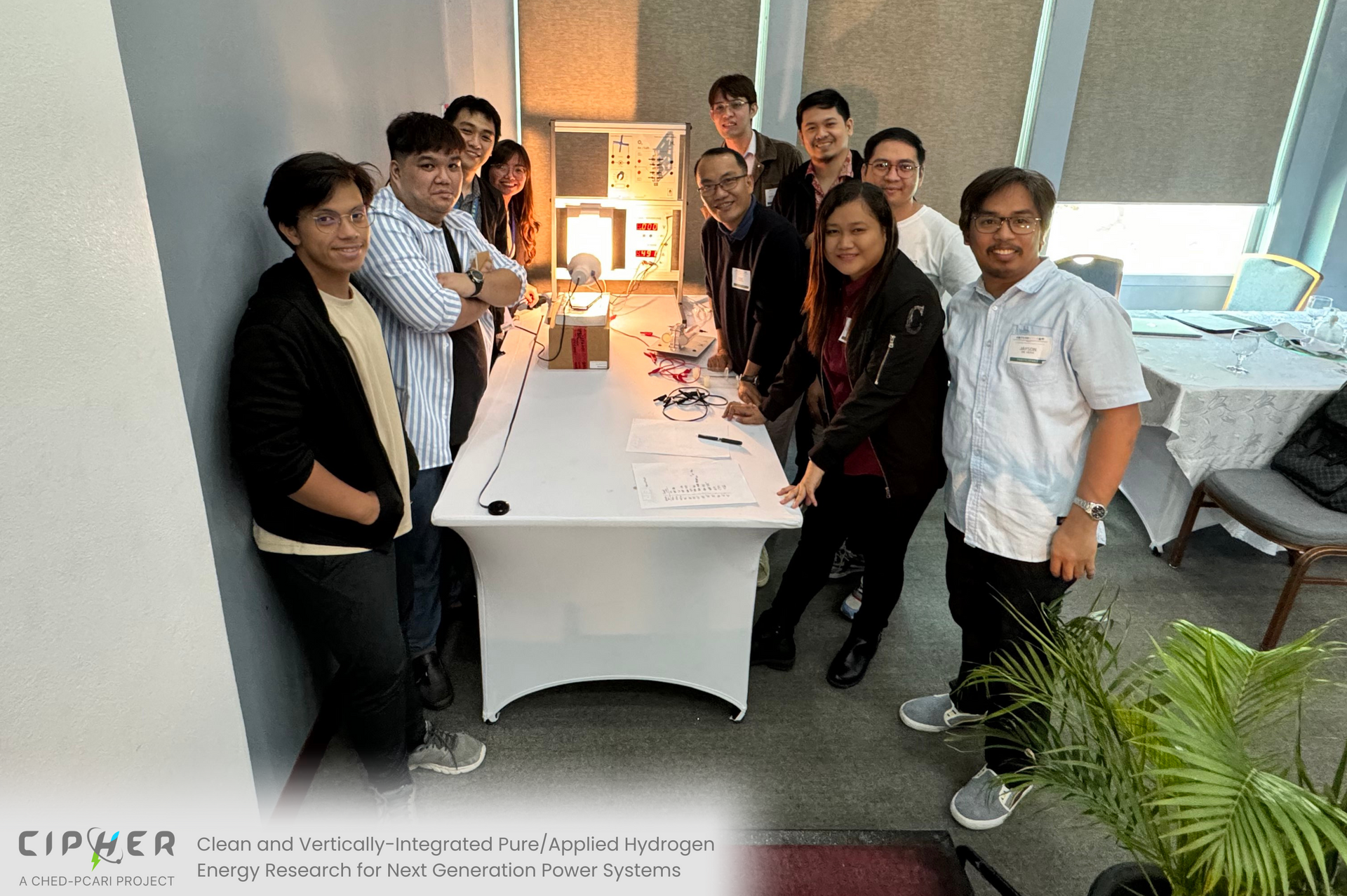
Slide title
Write your caption hereButton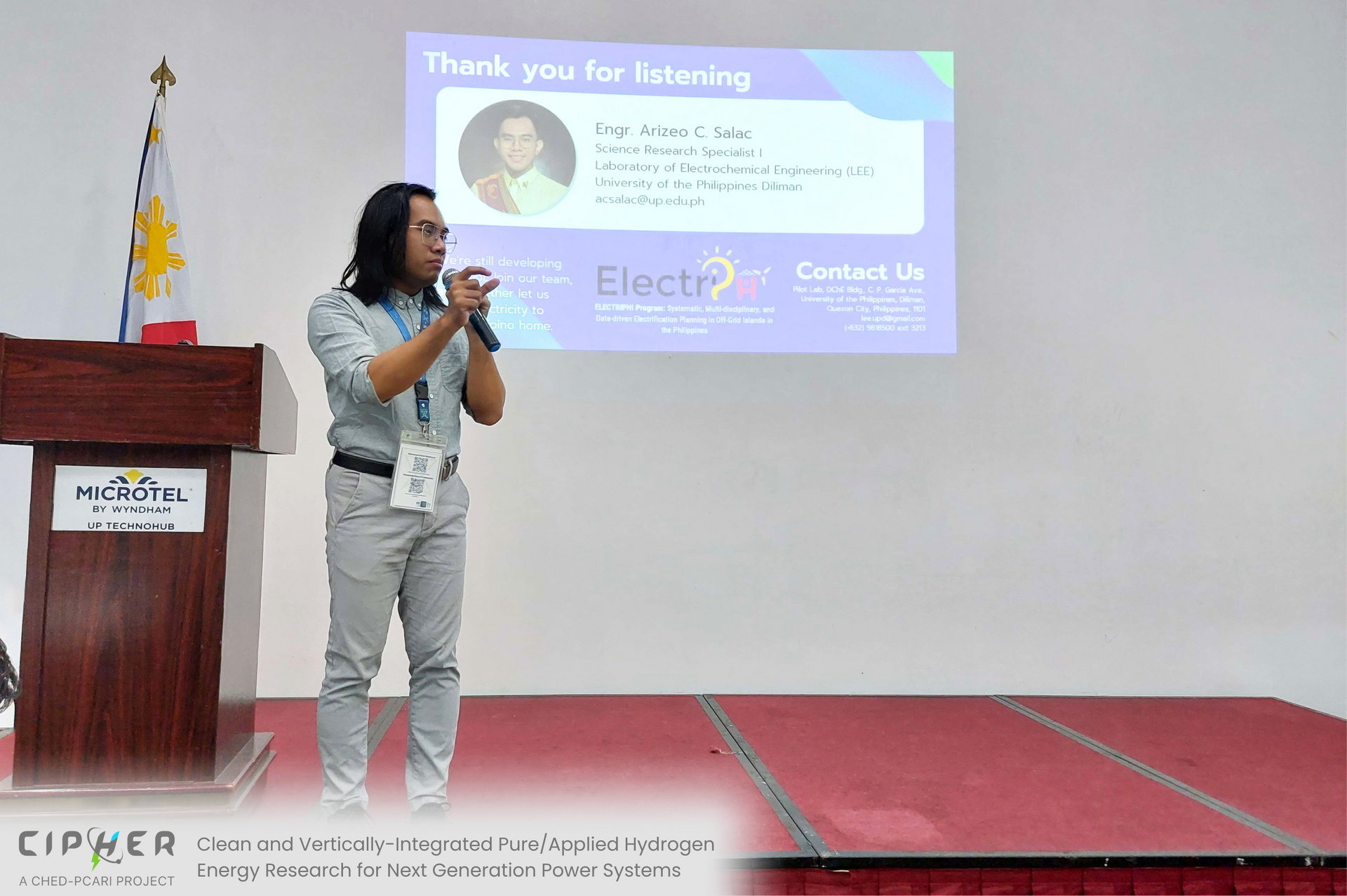
Slide title
Write your caption hereButton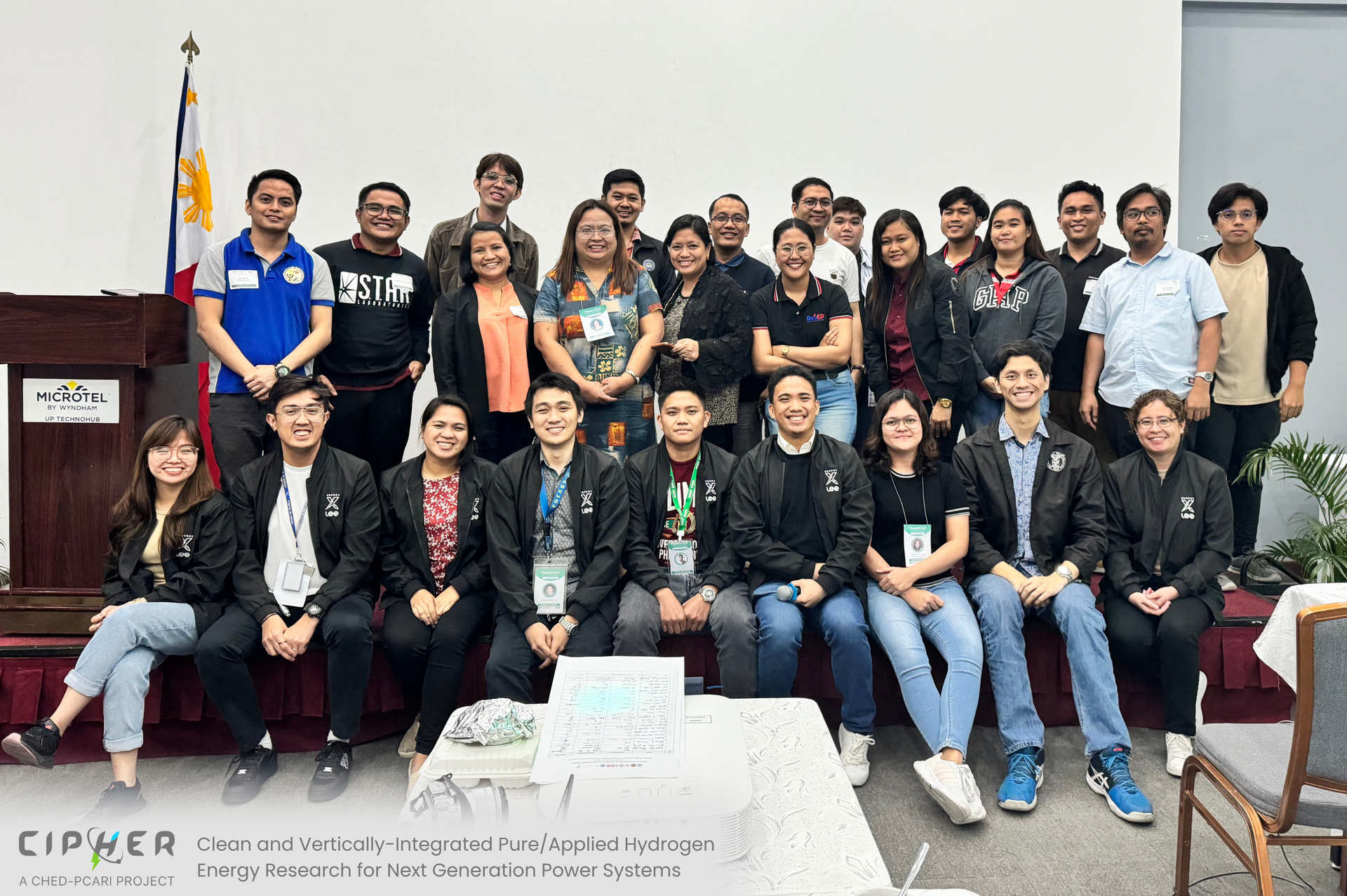
Slide title
Write your caption hereButton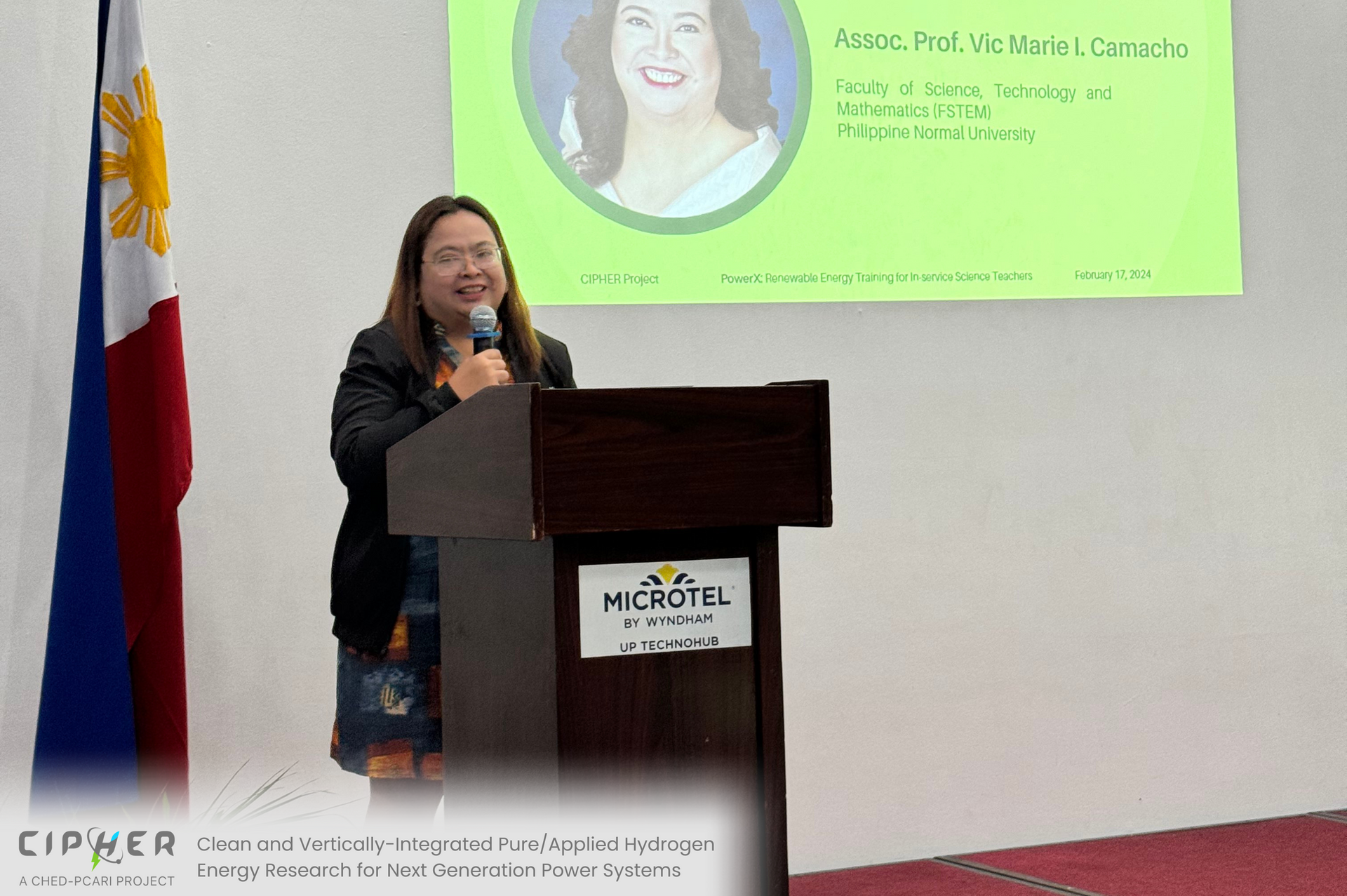
Slide title
Write your caption hereButton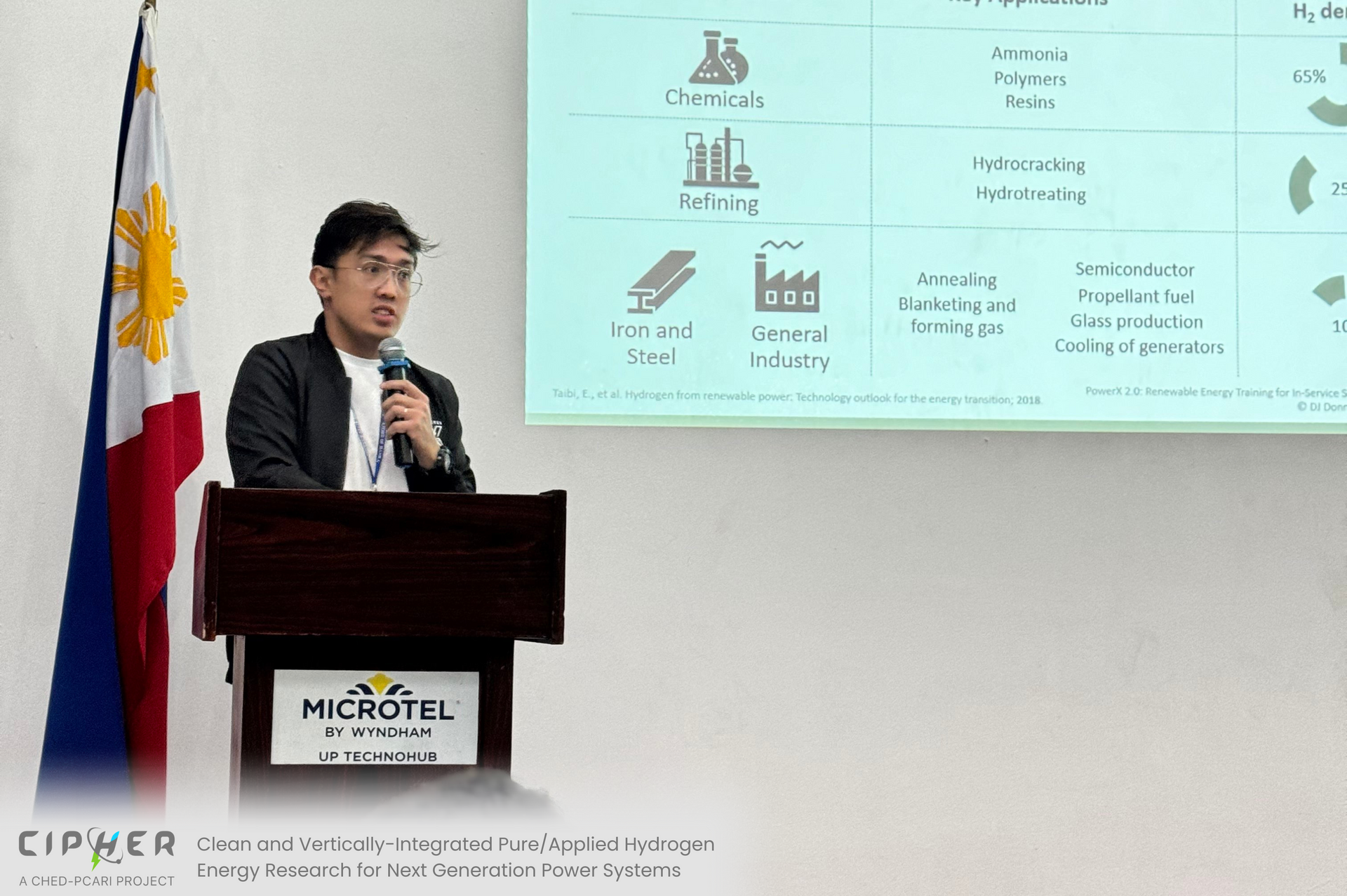
Slide title
Write your caption hereButton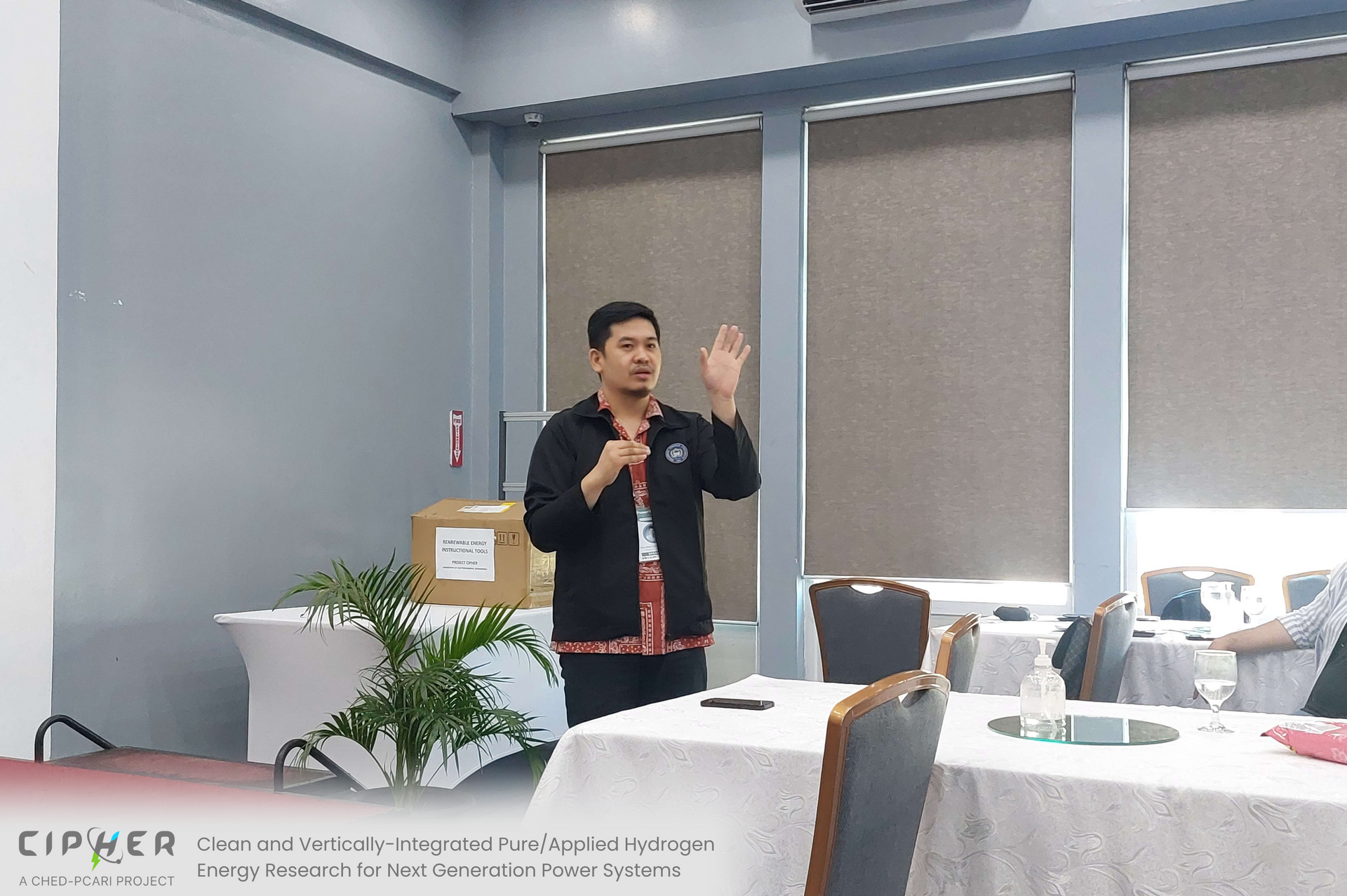
Slide title
Write your caption hereButton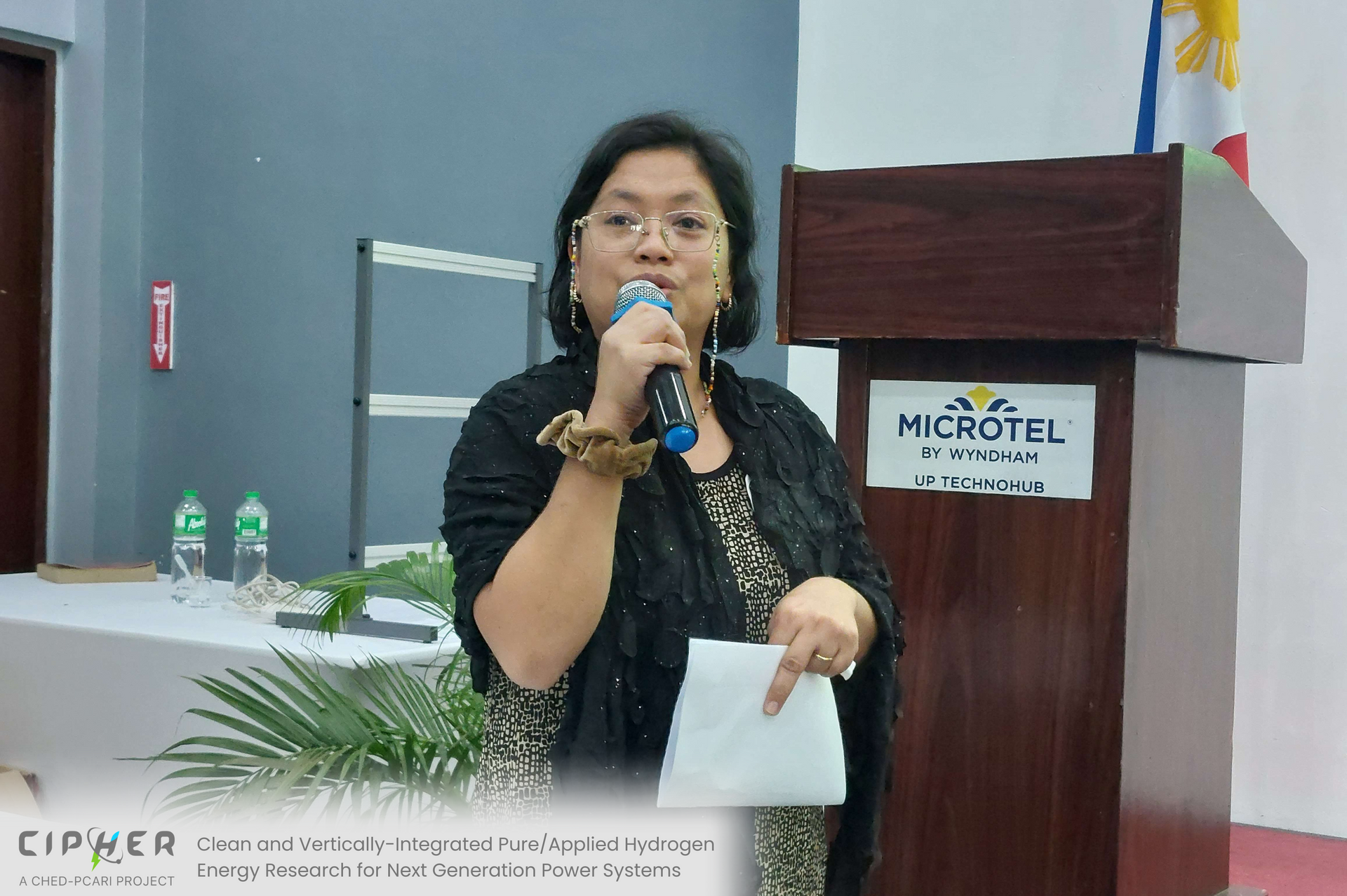
Slide title
Write your caption hereButton
Quezon City, Philippines
- 16 in-service science teachers participated in the training titled "𝗣𝗼𝘄𝗲𝗿𝗫 𝟮.𝟬: 𝗥𝗲𝗻𝗲𝘄𝗮𝗯𝗹𝗲 𝗘𝗻𝗲𝗿𝗴𝘆 𝗧𝗿𝗮𝗶𝗻𝗶𝗻𝗴 𝗳𝗼𝗿 𝗜𝗻-𝘀𝗲𝗿𝘃𝗶𝗰𝗲 𝗦𝗰𝗶𝗲𝗻𝗰𝗲 𝗧𝗲𝗮𝗰𝗵𝗲𝗿𝘀" on 𝗙𝗲𝗯𝗿𝘂𝗮𝗿𝘆 𝟭𝟳, 𝟮𝟬𝟮𝟰 (𝟴:𝟬𝟬 𝗔𝗠 - 𝟱:𝟬𝟬 𝗣𝗠) at the 𝗠𝗶𝗰𝗿𝗼𝘁𝗲𝗹 𝗯𝘆 𝗪𝘆𝗻𝗱𝗵𝗮𝗺 𝗨𝗣 𝗧𝗲𝗰𝗵𝗻𝗼𝗵𝘂𝗯, 𝗖𝗼𝗺𝗺𝗼𝗻𝘄𝗲𝗮𝗹𝘁𝗵 𝗔𝘃𝗲., 𝗤𝘂𝗲𝘇𝗼𝗻 𝗖𝗶𝘁𝘆.
This training aimed to help the participants gain knowledge and understanding of the science concepts about harnessing and utilization of renewable energy. Additionally, after the training, attendees are expected to be able to design lessons on renewable energy utilizing engineering design strategy.
Lectures on Hybrid Renewable Energy Systems, Hydrogen Production, and Engineering Design Process and Improvisation were delivered by Engr. Arizeo C. Salac (SRS I, ElectriPHI), Dr. DJ Donn C. Matienzo (Research Fellow V, CIPHER), and Prof. Alfons Jayson O. Pelgone (PNU FSTEM), respectively. Workshops were also facilitated by Project CIPHER Research Fellows, utilizing the renewable energy toolkits procured by the project. After each exercise, representatives from each group were also allowed to present their findings from the experiments.
The event was graced by Prof. Vic Marie I. Camacho of the Philippine Normal University, who delivered the Opening Remarks. Selected participants were also able to share their insights and reflection at the end of the event.
The training was organized by the Laboratory of Electrochemical Engineering - UPD through the CHED-PCARI Project CIPHER, in collaboration with the Philippine Normal University - Faculty of Science, Technology and Mathematics (PNU-FSTEM), and co-organized by The Electrochemical Society - University of the Philippines Student Chapter (ECS-UP).
----------------------
𝘛𝘩𝘪𝘴 𝘦𝘷𝘦𝘯𝘵 𝘪𝘴 𝘧𝘶𝘯𝘥𝘦𝘥 𝘣𝘺 𝘛𝘩𝘦 𝘊𝘐𝘗𝘏𝘌𝘙 𝘗𝘳𝘰𝘫𝘦𝘤𝘵 (𝘗𝘳𝘰𝘫𝘦𝘤𝘵 𝘓𝘦𝘢𝘥𝘦𝘳: 𝘋𝘳. 𝘑𝘰𝘦𝘺 𝘋. 𝘖𝘤𝘰𝘯) through 𝘵𝘩𝘦 𝘊𝘰𝘮𝘮𝘪𝘴𝘴𝘪𝘰𝘯 𝘰𝘯 𝘏𝘪𝘨𝘩𝘦𝘳 𝘌𝘥𝘶𝘤𝘢𝘵𝘪𝘰𝘯 - 𝘗𝘩𝘪𝘭𝘪𝘱𝘱𝘪𝘯𝘦-𝘊𝘢𝘭𝘪𝘧𝘰𝘳𝘯𝘪𝘢 𝘈𝘥𝘷𝘢𝘯𝘤𝘦𝘥 𝘙𝘦𝘴𝘦𝘢𝘳𝘤𝘩 𝘐𝘯𝘴𝘵𝘪𝘵𝘶𝘵𝘦𝘴 𝘶𝘯𝘥𝘦𝘳 𝘵𝘩𝘦 𝘊𝘺𝘤𝘭𝘦 6 𝘨𝘳𝘢𝘯𝘵𝘴 (𝘐𝘐𝘐𝘋 2018-008).
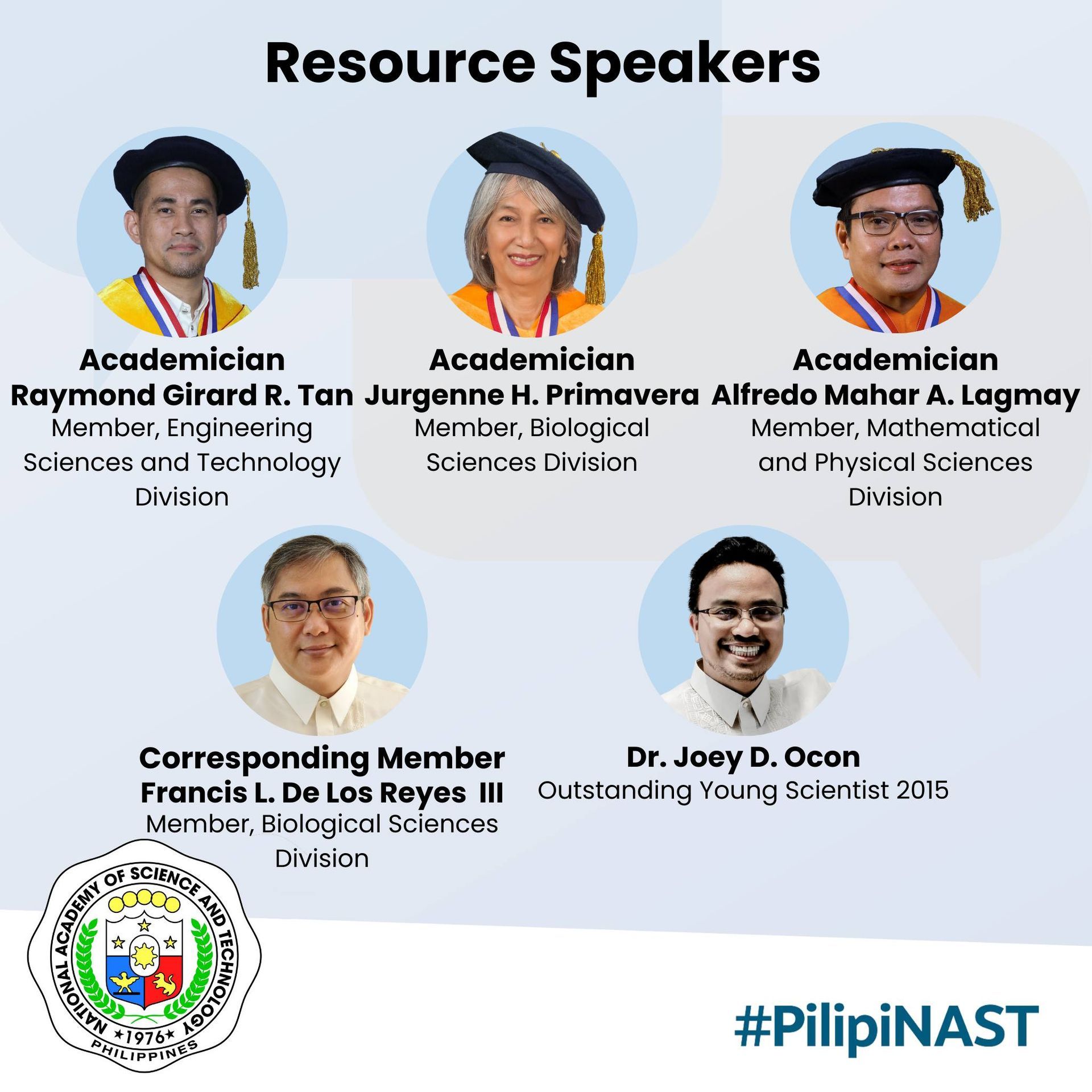
By Mecaelah Palaganas
•
12 Apr, 2024
The National Academy of Science and Technology Philippines (NAST PHL) conducted a three-part webinar series on the Innovations for Human and Planet Health and Security to promote open innovation and collaboration as a defining factor of socio-economic development. Highly esteemed NAST members of the representative divisions of various fields in science, awardees, and experts were invited to tackle the current innovation ecosystem of the Philippines and the innovative solutions that address food security and climate change. Aimed to promote multidisciplinary discourse and partnerships, the event was participated by researchers, policymakers, government officials, and the general public. Among the prestigious roster of resource speakers was Prof. Joey D. Ocon who delivered his talk on “Next Generation Batteries and Green Hydrogen with Renewables: Opportunities in the Clean Energy Transition” during the third segment of the NAST PHL Innovation Series. Prof. Ocon shared insights on the crucial role of energy storage technologies in the transition to renewable energy sources and the scalability of energy systems that can help satisfy the energy demand in the country. As part of the vertically-integrated R&D agenda of the Laboratory of Electrochemical Engineering (LEE), he also introduced water electrolyzer technologies involved in the production of Green Hydrogen. Moreover, the research facilities in LEE such as the CHED-LAKAS funded Hydrogen as Vector for Energy (HyVE) Research Facility and the DOST-NICER funded Advanced Batteries Center, both of which are first of its kind within the country, were highlighted as well as their capabilities and future endeavors. In the area of commercialization, Prof. Ocon discussed the multi-scale approach of the startup Nascent Technologies Corporation and its mission on industrial decarbonization by providing technologies and solutions for various energy storage applications. Through information dissemination in his thematic talk, more innovators and collaborators can come forward in support of the vision of the ongoing projects led by Prof. Ocon and devise integrative innovations that can contribute to the clean energy transition in the Philippines. Reference: https://nast.dost.gov.ph/index.php/13-news-press-releases/752-nast-phl-to-conduct-webinar-series-on-innovations-for-food-security-climate-change
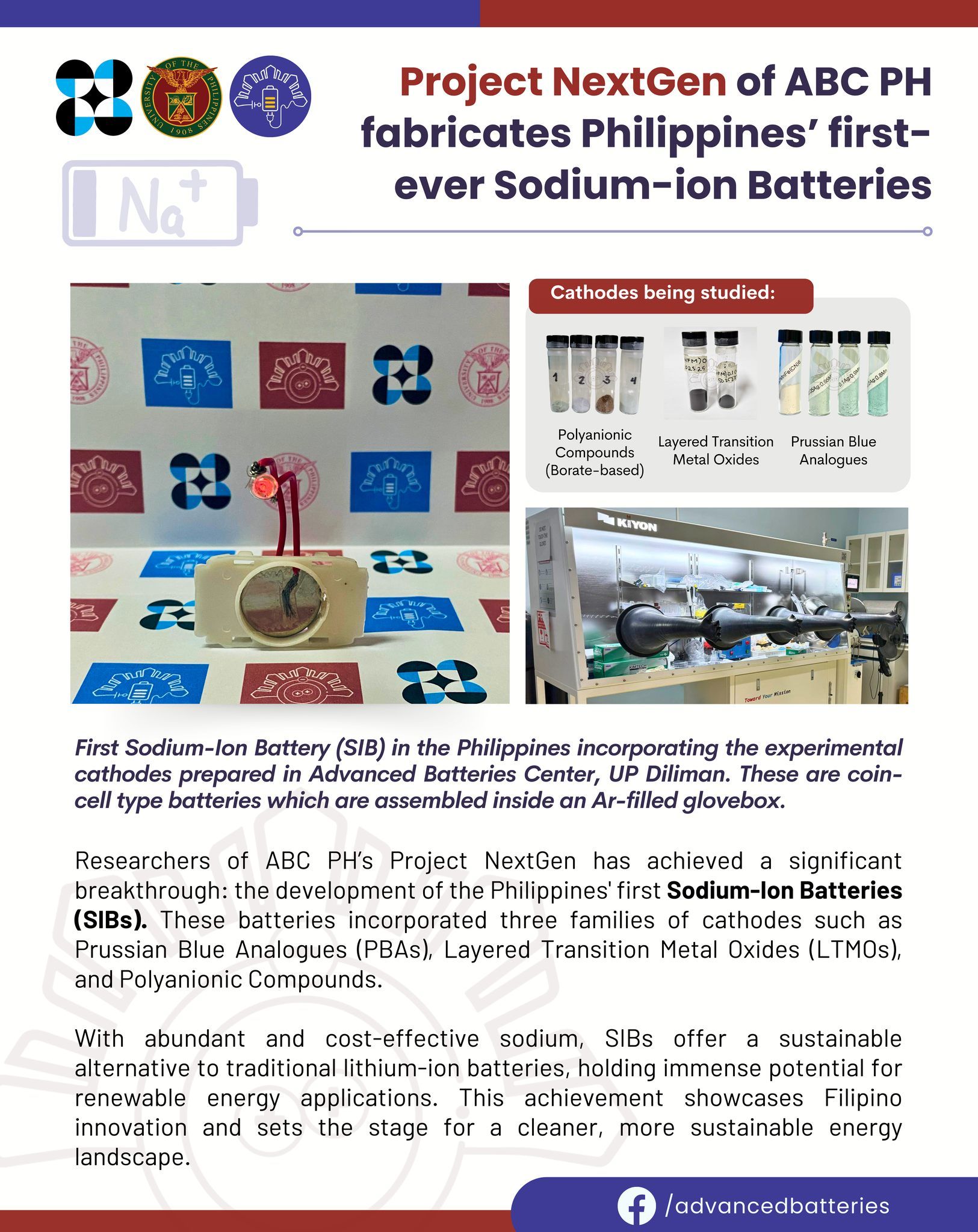
By Mecaelah Palaganas
•
20 Mar, 2024
Researchers of 𝗔𝗕𝗖 𝗣𝗛’𝘀 𝗣𝗿𝗼𝗷𝗲𝗰𝘁 𝗡𝗲𝘅𝘁𝗚𝗲𝗻 has achieved a significant breakthrough: the development of the 𝐏𝐡𝐢𝐥𝐢𝐩𝐩𝐢𝐧𝐞𝐬' 𝐟𝐢𝐫𝐬𝐭 𝐒𝐨𝐝𝐢𝐮𝐦-𝐈𝐨𝐧 𝐁𝐚𝐭𝐭𝐞𝐫𝐢𝐞𝐬 (𝐒𝐈𝐁𝐬). These batteries incorporated three families of cathodes such as 𝙋𝙧𝙪𝙨𝙨𝙞𝙖𝙣 𝘽𝙡𝙪𝙚 𝘼𝙣𝙖𝙡𝙤𝙜𝙪𝙚𝙨 (𝙋𝘽𝘼𝙨), 𝙇𝙖𝙮𝙚𝙧𝙚𝙙 𝙏𝙧𝙖𝙣𝙨𝙞𝙩𝙞𝙤𝙣 𝙈𝙚𝙩𝙖𝙡 𝙊𝙭𝙞𝙙𝙚𝙨 (𝙇𝙏𝙈𝙊𝙨), 𝙖𝙣𝙙 𝙋𝙤𝙡𝙮𝙖𝙣𝙞𝙤𝙣𝙞𝙘 𝘾𝙤𝙢𝙥𝙤𝙪𝙣𝙙𝙨. With abundant and cost-effective sodium, SIBs offer a sustainable alternative to traditional lithium-ion batteries, holding immense potential for renewable energy applications. This achievement showcases 𝗙𝗶𝗹𝗶𝗽𝗶𝗻𝗼 𝗶𝗻𝗻𝗼𝘃𝗮𝘁𝗶𝗼𝗻 and sets the stage for a cleaner, more sustainable energy landscape. --- 𝗔𝗱𝘃𝗮𝗻𝗰𝗲𝗱 𝗕𝗮𝘁𝘁𝗲𝗿𝗶𝗲𝘀 𝗖𝗲𝗻𝘁𝗲𝗿 𝗣𝗵𝗶𝗹𝗶𝗽𝗽𝗶𝗻𝗲𝘀 (𝗔𝗕𝗖 𝗣𝗛) is a collaborative R&D program between Technological Institute of the Philippines (TIP) and University of the Philippines Diliman (UPD) funded by the Department of Science and Technology (DOST) through DOST-Science for Change Program. The three projects under this program focus on innovating different battery chemistries. The 𝗡𝗲𝘅𝘁𝗚𝗲𝗻 𝗣𝗿𝗼𝗷𝗲𝗰𝘁 aims to develop advanced cathode materials for next-generation batteries. The 𝗥𝗘𝗕𝗖𝗲𝗹𝗹 𝗣𝗿𝗼𝗷𝗲𝗰𝘁 targets to renew the Edison Battery using advanced cell architecture. 𝗔𝗟𝗔𝗕-𝗘𝗨 𝗣𝗿𝗼𝗷𝗲𝗰𝘁 pursues to develop advanced lead acid batteries with embedded ultrasonics.


